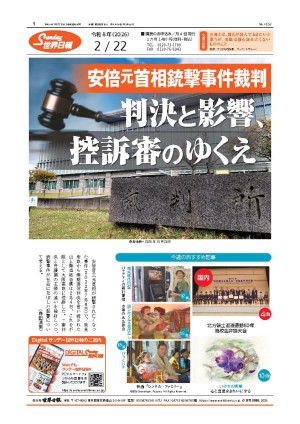悲惨な未来予測-情報機関報告 Intelligence report predicts dire future
ゲーツ元中央情報局(CIA)長官はかつて、情報アナリストが花の匂いを嗅ぐときは、霊柩車を探しているときだと言った。国家情報会議(NIC)が最近作成した長期情報予測はまさにこれだ。
調査・情報分析機関NICは今週、今後の世界的潮流に関する報告を公表した。それによると、アナリストらが描いた未来は明るくない。
235㌻の報告は「今後5年間は、国内および国家間の緊張が高まる。世界が直面する課題は複雑さを増し、世界の経済は低迷する。国家、組織、力を持つ個人の勢力範囲は拡大を続け、地政学を形成する」と指摘している。
...【全文を読む】







